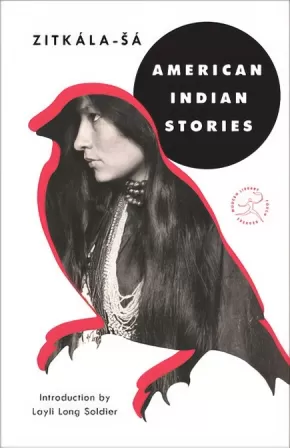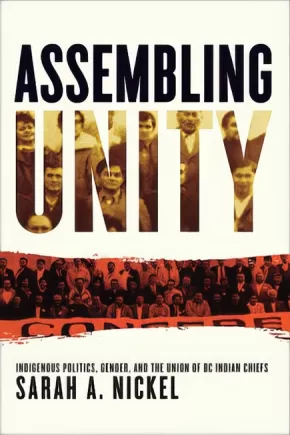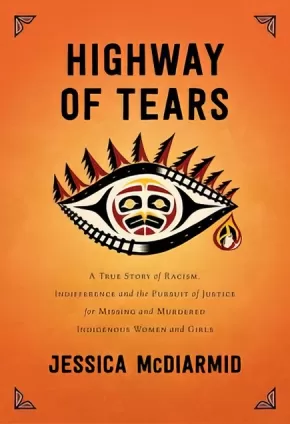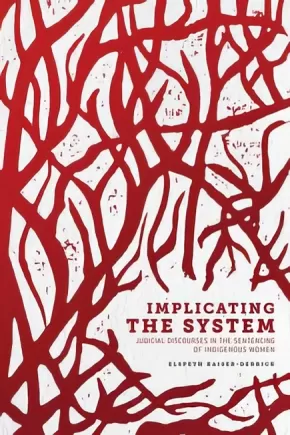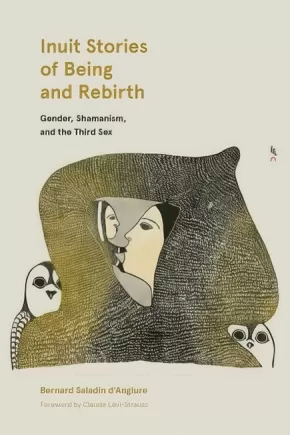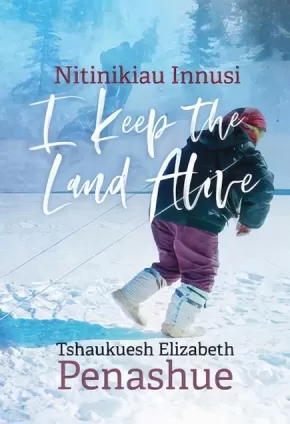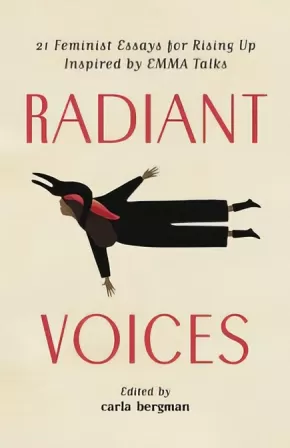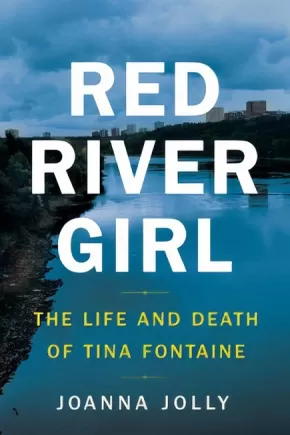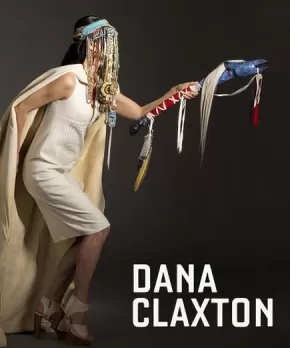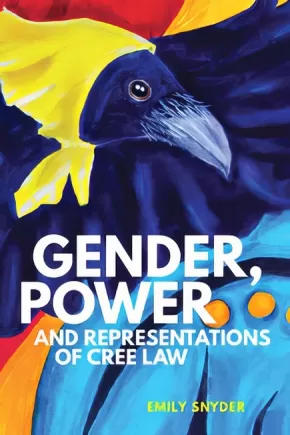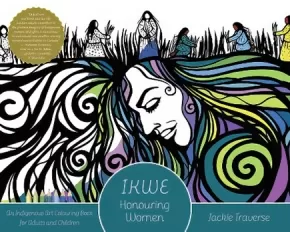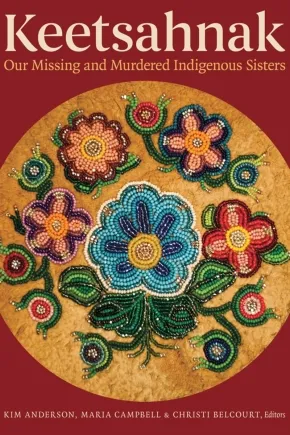
Women's Studies
91
-
105
of
131 Results;
Sort By
Go To
of 9
American Indian Stories
$20.00
Format:
Paperback
Text Content Territories:
Indigenous American; Native American; Sioux; Dakota; Yankton ;
Grade Levels: University/College;
ISBN / Barcode: 9781984854216
Synopsis:
Synopsis:
A groundbreaking Dakota author and activist chronicles her refusal to assimilate into nineteenth-century white society and her mission to preserve her culture—with an introduction by Layli Long Soldier, winner of the National Book Critics Circle Award and the PEN/Jean Stein Book Award for Whereas.
Bright and carefree, Zitkála-Šá grows up on the Yankton Sioux reservation in South Dakota with her mother until Quaker missionaries arrive, offering the reservation’s children a free education. The catch: They must leave their parents behind and travel to Indiana. Curious about the world beyond the reservation, Zitkála-Šá begs her mother to let her go—and her mother, aware of the advantages that an education offers, reluctantly agrees.
But the missionary school is not the adventure that Zitkála-Šá expected: The school is a strict one, her long hair is cut short, and only English is spoken. She encounters racism and ridicule. Slowly, Zitkála-Šá adapts to her environment—excelling at her studies, winning prizes for essay-writing and oration. But the price of success is estrangement from her cultural roots—and is it one she is willing to pay?
Combining Zitkála-Šá’s childhood memories, her short stories, and her poetry, American Indian Stories is the origin story of an activist in the making, a remarkable woman whose extraordinary career deserves wider recognition.
Additional Information
160 pages | 5.18" x 8.00"
Assembling Unity: Indigenous Politics, Gender, and the Union of BC Indian Chiefs
$32.95
Format:
Paperback
Text Content Territories:
Indigenous Canadian;
Grade Levels: University/College;
ISBN / Barcode: 9780774837996
Synopsis:
Synopsis:
Established narratives portray Indigenous unity as emerging solely in response to the political agenda of the settler state. But unity has long shaped the modern Indigenous political movement. With Indigenous perspectives in the foreground, Assembling Unity explores the relationship between global political ideologies and pan-Indigenous politics in British Columbia through a detailed history of the Union of BC Indian Chiefs. Sarah Nickel demonstrates that the articulation of unity was heavily negotiated between UBCIC members, grassroots constituents, and Indigenous women’s organizations. This incisive work unsettles dominant political narratives that cast Indigenous men as reactive and Indigenous women as apolitical.
This book will appeal to scholars and students of history, BC studies, and Indigenous studies, particularly those with an interest in gender and politics. It will also find an audience among Indigenous communities, activists, and political leaders.
Reviews
"Assembling Unity is a much needed resource that should be read by those wanting to learn about the historical issues BC Indigenous communities have faced – the same issues we continue to raise with current Canadian governments with little improvement." - Francyne Joe, President of the Native Women’s Association of Canada and member of the Shackan First Nation
Educator Information
Related Topics: BC Studies, Indigenous Studies, Canadian History, Gender & Sexuality Studies, History, Regional Studies, Women's Studies.
Table of Contents
Beginnings
Part 1: Pan-Indigenous Unity
1 Unity: “United we stand, divided we perish”
2 Authority: “Ordinary Indians” and “the private club”
3 Money: “A blessing and a golden noose”
Part 2: A Philosophical Revolution and Competing Nationalisms
4 Refusal: “Empty words and empty promises”
5 Protest: Direct Action through “Militant May”
6 Sovereignty: “If you really believe that you have the right, take it!”
Reflections
Appendix
Notes
Bibliography
Index
Additional Information
236 pages | 6.00" x 9.00" | 1 b&w photo, 2 maps, 3 tables
Halfbreed: Restored Edition (2 in Stock)
$19.95
Format:
Paperback
Text Content Territories:
Indigenous Canadian; Métis;
ISBN / Barcode: 9780771024092
Synopsis:
Synopsis:
A new, fully restored edition of the essential Canadian classic.
An unflinchingly honest memoir of her experience as a Métis woman in Canada, Maria Campbell's Halfbreed depicts the realities that she endured and, above all, overcame. Maria was born in Northern Saskatchewan, her father the grandson of a Scottish businessman and Métis woman--a niece of Gabriel Dumont whose family fought alongside Riel and Dumont in the 1885 Rebellion; her mother the daughter of a Cree woman and French-American man. This extraordinary account, originally published in 1973, bravely explores the poverty, oppression, alcoholism, addiction, and tragedy Maria endured throughout her childhood and into her early adult life, underscored by living in the margins of a country pervaded by hatred, discrimination, and mistrust. Laced with spare moments of love and joy, this is a memoir of family ties and finding an identity in a heritage that is neither wholly Indigenous or Anglo; of strength and resilience; of indominatable spirit.
This edition of Halfbreed includes a new introduction written by Indigenous (Métis) scholar Dr. Kim Anderson detailing the extraordinary work that Maria has been doing since its original publication 46 years ago, and an afterword by the author looking at what has changed, and also what has not, for Indigenous people in Canada today. Restored are the recently discovered missing pages from the original text of this groundbreaking and significant work.
Additional Information
224 pages | 5.21" x 7.99"
Highway of Tears: A True Story of Racism, Indifference and the Pursuit of Justice for Missing and Murdered Indigenous Women and Girls
$21.00
Format:
Paperback
Text Content Territories:
Indigenous Canadian;
Grade Levels: University/College;
ISBN / Barcode: 9780385687591
Synopsis:
Synopsis:
A penetrating and deeply moving account of the missing and murdered Indigenous women and girls of Highway 16, and a searing indictment of the society that failed them.
For decades, Indigenous women and girls have gone missing or been found murdered along an isolated stretch of highway in northwestern British Columbia. The highway is known as the Highway of Tears, and it has come to symbolize a national crisis.
Journalist Jessica McDiarmid meticulously investigates the devastating effect these tragedies have had on the families of the victims and their communities, and how systemic racism and indifference has created a climate where Indigenous women and girls are over-policed, yet under-protected. Through interviews with those closest to the victims--mothers and fathers, siblings and friends--McDiarmid provides an intimate, first-hand account of their loss and unflagging fight for justice. Examining the historically fraught social and cultural tensions between settlers and Indigenous peoples in the region, McDiarmid links these cases to others across Canada--now estimated to number up to 4,000--contextualizing them within a broader examination of the undervaluing of Indigenous lives in the country.
Highway of Tears is a piercing exploration of our ongoing failure to provide justice for missing and murdered Indigenous women and girls, and testament to their families and communities' unwavering determination to find it.
Additional Information
352 pages | 6.00" x 9.00"
Implicating the System: Judicial Discourses in the Sentencing of Indigenous Women
$34.95
Format:
Paperback
Text Content Territories:
Indigenous Canadian;
Grade Levels: University/College;
ISBN / Barcode: 9780887558283
Synopsis:
Synopsis:
Indigenous women continue to be overrepresented in Canadian prisons; research demonstrates how their over-incarceration and often extensive experiences of victimization are interconnected with and through ongoing processes of colonization. Implicating the System: Judicial Discourses in the Sentencing of Indigenous Women explores how judges navigate these issues in sentencing by examining related discourses in selected judgments from a review of 175 decisions.
The feminist theory of the victimization-criminalization continuum informs Elspeth Kaiser-Derrick’s work. She examines its overlap with the Gladue analysis, foregrounding decisions that effectively integrate gendered understandings of Indigenous women’s victimization histories, and problematizing those with less contextualized reasoning. Ultimately, she contends that judicial use of the victimization-criminalization continuum deepens the Gladue analysis and augments its capacity to further its objectives of alternatives to incarceration.
Kaiser-Derrick discusses how judicial discourses about victimization intersect with those about rehabilitation and treatment, and suggests associated problems, particularly where prison is characterized as a place of healing. Finally, she shows how recent incursions into judicial discretion, through legislative changes to the conditional sentencing regime that restrict the availability of alternatives to incarceration, are particularly concerning for Indigenous women in the system.
Reviews
“Elspeth Kaiser-Derrick’s work is an important read in light of the needs of truth and reconciliation. Her exploration of judicial discourses in the sentencing of Indigenous women reveal the multiple systemic failures of Canada’s justice system. What judge’s say and write is important because it reflects and refracts the inequalities and injustices that are embedded in our collective social order. Their words are demonstrative of the dire need for dramatic changes in Canada’s justice system. The book is a must read for all persons concerned with justice, criminal law and human rights.” — Richard Jochelson
Additional Information
414 pages | 6.00" x 9.00" | bibliography | index
Inuit Stories of Being and Rebirth: Gender, Shamanism, and the Third Sex
$31.95
Format:
Paperback
Text Content Territories:
Indigenous Canadian; Inuit;
Grade Levels: University/College;
ISBN / Barcode: 9780887558306
Synopsis:
Synopsis:
The small island of Igloolik lies between the Melville Peninsula and Baffin Island at the northern end of Hudson Bay north of the Arctic Circle. It has fascinated many in the Western world since 1824, when a London publisher printed the narratives by William Parry and his second-in-command, George Lyon, about their two years spent looking for the mythical Northwest Passage.
Nearly a hundred and fifty years later, Bernard Saladin d’Anglure arrived in Igloolik, hoping to complete the study he had been conducting for nearly six months in Arctic Quebec (present-day Nunavik). He was supposed to spend a month on Igloolik, but on his first morning there, Saladin d’Anglure met the elders Ujarak and Iqallijuq. He learned that they had been informants for Knud Rasmussen in 1922. Moreover, they had spent most of their lives in the camps and fully remembered the pre-Christian period.
Ujarak and Iqallijuq soon became Saladin d’Anglure’s friends and initiated him into the symbolism, myths, beliefs, and ancestral rules of the local Inuit. With them and their families, Saladin d’Anglure would work for thirty years, gathering the oral traditions of their people.
First published in French in 2006, Inuit Stories of Being and Rebirth contains an in-depth, paragraph-by-paragraph analysis of stories on womb memories, birth, namesaking, and reincarnation. This new English edition introduces this material to a broader audience and contains a new afterword by Saladin d’Anglure.
Contents
Ch. 1—Savviurtalik is Reincarnated
Ch. 2—Inuit Genesis and the Desire for Children
Ch. 3—‘Big Belly’
Ch. 4—Incestuous Moon Brother chases Sun Sister
Ch. 5—A Headstrong Daughter
Ch. 6—A Cheated Husband
Ch. 7—Girls Should not Play at Marriage
Ch. 8—A Battered Wife
Ch. 9—Walrus Skin, a Mistreated Orphan, Rescued by the Moon Man
Ch. 10—The Danger of Being Impregnated by a Spirit
Ch. 11—The First Woman Healer
Ch. 12—The Strange Man and His Whale
Ch. 13—Atanaarjuat, The Fast Runner, a Mythical Hero
Ch. 14—Aaguttaaluk, the Cannibal Forebear
Ch. 15—Qisaruatsiaq, Back to Her Mother’s Womb
Reviews
“The real strength of the book are the dialogues between d’Anglure, Iqallijuq, and Ujarak that provide insights into many of the stories provided by Kupaaq … providing one of the first Inuit commentaries on their own texts.” – Chris Trott, Etudes/Inuit/Studies
“The real strength of the book are the dialogues between d’Anglure, Iqallijuq, and Ujarak that provide insights into many of the stories provided by Kupaaq … providing one of the first Inuit commentaries on their own texts.” – Chris Trott, Etudes/Inuit/Studies
Additional Information
400 pages | 6.00" x 9.00"
400 pages | 6.00" x 9.00"
Invisible Generations: Irene Kelleher's Story of Living between Indigenous and White (1 in stock)
$24.95
Format:
Paperback
Text Content Territories:
Indigenous Canadian;
Grade Levels: University/College;
ISBN / Barcode: 9781773860053
Synopsis:
Synopsis:
Irene Kelleher lived all her life in the shadow of her inheritance. Her local community in British Columbia's Fraser Valley all too often treated her as if she was invisible. The combination of white and Indigenous descent that Irene embodied was beyond the bounds of acceptability by a dominant white society. To be mixed was to not belong.
Attracted to the future British Columbia by a gold rush beginning in 1858, Irene's white grandfathers had families with Indigenous women. Theirs was not an uncommon story. Some of the earliest newcomers to do so were in the employ of the fur-trading Hudson's Bay Company at Fort Langley. And yet, more than one hundred and fifty years later, the descendants of these early pioneers are still waiting for their stories to be heard.
Through meticulous research, family records and a personal connection to Irene, Governor General award-winning historian Jean Barman explores this aspect of British Columbia's history and the deeply rooted prejudice faced by families who helped to build Canada. Invisible Generations evokes the Catholic residential school that Irene's parents and so many other ''mixed blood'' children attended. Among Irene's family and friends we meet Josephine, who was separated as a child from her beloved upwardly mobile politician father. When her presence in his socially charged household became untenable, Josephine was dispatched to the same Fraser Valley boarding school. ''The transition from genteel Victoria to St. Mary's Mission was horrendous,'' she wrote. Yet individuals and families survived as best they could, building good lives for themselves and those around them. Irene was determined to be a schoolteacher and taught across the farthest reaches of the province, including Doukhobor children at a time when the community was vehemently opposed to their offspring attending school.
Stories like that of Irene and of her family and friends have been largely forgotten, but in Invisible Generations Barman brings this important conversation into focus, shedding light on a common history across British Columbia and Canada. It is, in Irene's words, ''time to tell the story.''
Reviews
“B.C.’s preeminent historian, Jean Barman, honours the lives of those once disparaged as “half-breeds” and second class citizens. Irene Kelleher and her family persevered with dignity in the face of racism; their stories link us to the fur trade, gold rush and settlement of the province. Indeed, these Invisible Generations helped forge a modern British Columbia. They should be celebrated, not forgotten.”—Mark Forsythe, former CBC British Columbia broadcaster and co-author with Greg Dickson of From the West Coast to the Western Front: British Columbians and the Great War
“Irene Kelleher’s mixed-race ancestry, her adventures, her tribulations and her triumphs combine in this classic Jean Barman study, showing how the lives of ordinary people tell extraordinary truths about British Columbia’s culture and history.”—Michael Kluckner, author of Vanishing British Columbia and Toshiko
Additional Information
192 pages | 6.00" x 9.00"
Lac Pelletier: My Métis Home
$20.00
Text Content Territories:
Indigenous Canadian; Métis;
ISBN / Barcode: 978-1-926795-91-1
Synopsis:
Synopsis:
Gabriel Dumont Institute Press is honoured to publish Cecile Blanke’s Lac Pelletier: My Métis Home. A prominent Métis Elder living in Swift Current, Saskatchewan, but with deep roots in nearby Lac Pelletier, Cecile has been a tireless presence on the Métis and larger cultural scene in southwest Saskatchewan for many years. The history of the southwest Saskatchewan Métis is not widely known, and this book contributes significantly to our knowledge of this community. With her vivid memories of Lac Pelletier’s local families and traditions, we are left with an enduring portrait of a caring Métis community which maintained close family ties and lived in harmony with Lac Pelletier’s flora and fauna. Cecile also chronicles the racism that the local Métis often faced and discussed how colonization made her and others question their Métis identity. With time and perspective, she overcame this self-hatred and became proud of her Métis heritage, becoming its biggest promoter in her region of Saskatchewan.
Educator Information
Recommended by Gabriel Dumont Institute for these grade levels: Secondary/Post-Secondary/Adult
Nitinikiau Innusi: I Keep the Land Alive
$29.95
Format:
Paperback
Text Content Territories:
Indigenous Canadian; First Nations; Innu (Montagnais-Naskapi);
Grade Levels: University/College;
ISBN / Barcode: 9780887558405
Synopsis:
Synopsis:
Labrador Innu cultural and environmental activist Tshaukuesh Elizabeth Penashue is well-known both within and far beyond the Innu Nation. The recipient of a National Aboriginal Achievement Award and an honorary doctorate from Memorial University, she has been a subject of documentary films, books, and numerous articles. She led the Innu campaign against NATO’s low-level flying and bomb testing on Innu land during the 1980s and ’90s, and was a key respondent in a landmark legal case in which the judge held that the Innu had the “colour of right” to occupy the Canadian Forces base in Goose Bay, Labrador. Over the past twenty years she has led walks and canoe trips in nutshimit, “on the land,” to teach people about Innu culture and knowledge.
Nitinikiau Innusi: I Keep the Land Alive began as a diary written in Innu-aimun, in which Tshaukuesh recorded day-to-day experiences, court appearances, and interviews with reporters. Tshaukuesh has always had a strong sense of the importance of documenting what was happening to the Innu and their land. She also found keeping a diary therapeutic, and her writing evolved from brief notes into a detailed account of her own life and reflections on Innu land, culture, politics, and history.
Beautifully illustrated, this work contains numerous images by professional photographers and journalists as well as archival photographs and others from Tshaukuesh’s own collection.
Additional Information
288 pages | 6.00" x 8.50" | 128 colour illustrations | 1 map | bibliography
Radiant Voices: 21 Feminist Essays for Rising Up Inspired by EMMA Talks
$22.00
Editors:
Format:
Paperback
Text Content Territories:
Indigenous Canadian;
Grade Levels: 12; University/College;
ISBN / Barcode: 9781927366844
Synopsis:
Synopsis:
A collection of essays inspired by EMMA Talks, a speakers’ series committed to amplifying the voices of thinkers, activists, scholars, artists, and community builders who are also women-identified, trans, and gender-nonconforming folks.
From Idle No More to Black Lives Matter to the Me Too movements and more, one thing is certain: There is a burgeoning collective desire to hear non-dominant voices in subtle, curious, generative ways.
The Vancouver-based EMMA Talks speakers’ series amplifies the voices of women-identified, trans, and gender-nonconforming folks. Curated by carla bergman, the series showcases a diversity of writers, thinkers, activists, scholars, artists, and community builders. Radiant Voices is the anthology inspired by EMMA Talks.
Through engaging essays by Leanne Betasamosake Simpson, Silvia Federici, Vivek Shraya, Chief Janice George, dr. amina wadud, Astra Taylor, and others, seasoned writers align with emerging writers who share from a worldview that promotes anti-racism, anti-sexism, anti-ageism, and anti-ableism, and much more. Themes of connection, rediscovery, creating, social justice, celebration, and matriarchy are revealed in these 23 essays.
This is an era in which the marginalized can publicly share their stories en masse. Now is the time to celebrate the eruption of all these radiant voices.
Additional Information
|
Authenticity Note: Because this work has some Indigenous contributors, it has received the Authentic Indigenous Text label.
Red River Girl: The Life and Death of Tina Fontaine
$24.95
Format:
Paperback
Text Content Territories:
Indigenous Canadian; First Nations; Anishinaabeg; Ojibway; Cree (Nehiyawak);
Grade Levels: University/College;
ISBN / Barcode: 9780735233935
Synopsis:
Synopsis:
A gripping account of the unsolved death of an Indigenous teenager, and the detective determined to find her killer, set against the backdrop of a troubled city.
On August 17, 2014, the body of fifteen-year-old runaway Tina Fontaine was found in Winnipeg's Red River. It was wrapped in material and weighted down with rocks. Red River Girl is a gripping account of that murder investigation and the unusual police detective who pursued the killer with every legal means at his disposal. The book, like the movie Spotlight, chronicles the behind-the-scenes stages of a lengthy and meticulously planned investigation. It reveals characters and social tensions that bring vivid life to a story that made national headlines.
Award-winning BBC reporter and documentary maker Joanna Jolly delves into the troubled life of Tina Fontaine, the half-Ojibway, half-Cree murder victim, starting with her childhood on the Sagkeeng First Nation Reserve. Tina's journey to the capital city is a harrowing one, culminating in drug abuse, sexual exploitation, and death.
Aware of the reality of missing and murdered Indigenous women and girls, Jolly has chronicled Tina Fontaine's life as a reminder that she was more than a statistic. Raised by her father, and then by her great-aunt, Tina was a good student. But the violent death of her father hit Tina hard. She ran away, was found and put into the care of Child and Family Services, which she also sought to escape from. That choice left her in danger.
Red River Girl focuses not on the grisly event itself, but on the efforts to seek justice. In December 2015, the police charged Raymond Cormier, a drifter, with second-degree murder. Jolly's book will cover the trial, which resulted in an acquittal. The verdict caused dismay across the country.
The book is not only a true crime story, but a portrait of a community where Indigenous women are disproportionately more likely to be hurt or killed. Jolly asks questions about how Indigenous women, sex workers, community leaders, and activists are fighting back to protect themselves and change perceptions. Most importantly, the book will chronicle whether Tina's family will find justice.
Reviews
“Tina Fontaine brought international attention to the tragedy of missing and murdered Indigenous women, girls, and two-spirit folks. This retelling of her life and the investigation into her death is a breathtaking account of the fight to find justice for Tina.” —Wab Kinew, Leader of the Manitoba NDP and author of The Reason You Walk
Additional Information
320 pages | 6.00" x 9.00"
Dana Claxton
$40.00
Artists:
Format:
Hardcover
Text Content Territories:
Indigenous Canadian; First Nations; Sioux; Lakota; Hunkpapa;
ISBN / Barcode: 9781773270500
Synopsis:
Synopsis:
Known for her expansive multidisciplinary approach to art making Vancouver-based Dana Claxton, who is Hunkpapa Lakota (Sioux), has investigated notions of Indigenous identity, beauty, gender and the body, as well as broader social and political issues through a practice which encompasses photography, film, video and performance. Rooted in contemporary art strategies, her practice critiques the representations of Indigenous people that circulate in art, literature and popular culture in general. In doing so, Claxton regularly combines Lakota traditions with "Western" influences, using a powerful and emotive "mix, meld and mash" approach to address the oppressive legacies of colonialism and to articulate Indigenous world views, histories and spirituality. This timely catalogue is the first monograph to examine the full breadth and scope of Claxton's practice. It's extensively illustrated and includes essays by Claxton's colleague Jaleh Mansoor, Associate Professor in the Department of Art History, Visual Art & Theory at the University of British Columbia; Monika Kin Gagnon, Professor in the Communications Department at Concordia University, who has followed Claxton's work for 25 years; Olivia Michiko Gagnon, a New York-based scholar and doctoral student in Performance Studies; and Grant Arnold, Audain Curator of British Columbia Art at the Vancouver Art Gallery.
Additional Information
160 pages | 9.08" x 10.60"
Gender, Power, and Representations of Cree Law
$34.95
Format:
Paperback
Text Content Territories:
Indigenous Canadian; First Nations; Cree (Nehiyawak);
Grade Levels: University/College;
ISBN / Barcode: 9780774835695
Synopsis:
Synopsis:
Drawing on the insights of Indigenous feminist legal theory, Emily Snyder examines representations of Cree law and gender in books, videos, graphic novels, educational websites, online lectures, and a video game. Although these resources promote the revitalization of Cree law and the principle of miyo-wîcêhtowin (good relations), Snyder argues that they do not capture the complexities of gendered power dynamics.
The majority of the resources either erase women’s legal authority by not mentioning them, or they diminish women’s agency by portraying them primarily as mothers and nurturers. Although these latter roles are celebrated, Snyder argues that Cree laws and gender roles are represented in inflexible, aesthetically pleasing ways that overlook power imbalances and difficult questions regarding interpretations of tradition.
What happens when good relations are represented in ways that are oppressive? Grappling with this question, Snyder makes the case that educators need to critically engage with issues of gender and power in order to create inclusive resources that meaningfully address the everyday messiness of law. As with all legal orders, gendered oppression can be perpetuated through Cree law, but Cree law is also a dynamic resource for challenging gendered oppression.
This book will appeal to students and scholars of law, Indigenous studies, gender studies, and the sociology of inequality.
Reviews
"Emily Snyder engages with one of the thorniest issues in the field of Indigenous law – that of gender and power. This respectful, thoughtful, and razor-sharp analysis of essentialist and fundamentalist representations of women in Cree law both challenges and provokes. This book will change how we see and think about Indigenous law. It is a gift to feminism, to legal scholarship, and to Indigenous feminists and communities the world over." -
Additional Information
248 pages | 6.00" x 9.00"
IKWE: Honouring Women, Life Givers, and Water Protectors
$20.00
Artists:
Format:
Paperback
Text Content Territories:
Indigenous Canadian;
ISBN / Barcode: 9781773630731
Synopsis:
Synopsis:
An Indigneous Art Colouring Book for Adults and Children.
IKWE is a colouring book by Anishinaabe artist Jackie Traverse. Featuring brand new works, the stunning images in IKWE celebrate the spiritual and ceremonial aspects of women and their important role as water protectors.
“I had the privilege of going to Standing Rock twice. The strength and power that came from the women there inspired this book. To be a woman is to be a life giver and water protector. Even if you never have children, you have that sense, and the duty to honour and protect the water is within you,” writes Traverse.
Reviews
“The importance of celebrating Indigenous women and girls’ space and place within our collective journey toward healing, empowerment and reconciliation cannot be overstated. When we, as Indigenous women and girls, see ourselves reflected in positive and powerful ways, it renders emotional and spiritual transformative change in our lives. Jackie’s art, her book and her life fundamentally contribute to the positive imagery of Indigenous women and offers a sacred way to understand one another moving toward reconciliation in Canada.” — Nahanni Fontaine, NDP MLA for St. Johns, Legislative Assembly of Manitoba
“Jackie’s work is that medicine that connects us all to a time when the earth and her women were equally respected as sacred —life givers, leaders, teachers and healers. Her genius is to help make us remember.” — Leslie Spillett, Ka Ni Kanichihk, Winnipeg
“I first received Jackie’s colouring book as a gift. I was immediately struck by the feminine strength, beauty and resiliency in her drawings. The teachings she shares in the back of the colouring book add so much spiritual depth to her already powerful work! Hiy hiy mistahi Jackie for sharing your gifts of art and words, along with your cultural teachings with your drawings. — Lynette La Fontaine, Aboriginal nurse educator with Chee Mamuk, BC CDC
Additional Information
50 pages | 10.00" x 8.00"
Keetsahnak / Our Missing and Murdered Indigenous Sisters
$32.99
Editors:
Format:
Paperback
Text Content Territories:
Indigenous Canadian;
Grade Levels: University/College;
ISBN / Barcode: 9781772123678
Synopsis:
Synopsis:
In Keetsahnak / Our Murdered and Missing Indigenous Sisters, the tension between personal, political, and public action is brought home starkly as the contributors look at the roots of violence and how it diminishes life for all. Together, they create a model for anti-violence work from an Indigenous perspective. They acknowledge the destruction wrought by colonial violence, and also look at controversial topics such as lateral violence, challenges in working with “tradition,” and problematic notions involved in “helping.” Through stories of resilience, resistance, and activism, the editors give voice to powerful personal testimony and allow for the creation of knowledge.
It’s in all of our best interests to take on gender violence as a core resurgence project, a core decolonization project, a core of Indigenous nation building, and as the backbone of any Indigenous mobilization. —Leanne Betasamosake Simpson
Contributors: Kim Anderson, Stella August, Tracy Bear, Christi Belcourt, Robyn Bourgeois, Rita Bouvier, Maria Campbell, Maya Ode’amik Chacaby, Downtown Eastside Power of Women Group, Susan Gingell, Michelle Good, Laura Harjo, Sarah Hunt, Robert Alexander Innes, Beverly Jacobs, Tanya Kappo, Tara Kappo, Lyla Kinoshameg, Helen Knott, Sandra Lamouche, Jo-Anne Lawless, Debra Leo, Kelsey T. Leonard, Ann-Marie Livingston, Brenda Macdougall, Sylvia Maracle, Jenell Navarro, Darlene R. Okemaysim-Sicotte, Pahan Pte San Win, Ramona Reece, Kimberly Robertson, Leanne Betasamosake Simpson, Beatrice Starr, Madeleine Kétéskwew Dion Stout, Waaseyaa’sin Christine Sy, Alex Wilson
Educator Information
Useful for these subject areas: Women's Studies, Indigenous History, Sociology, Gender Studies, Social Science: Violence in Society.
Additional Information
400 pages | 6.00" x 9.00"
Sort By
Go To
of 9

